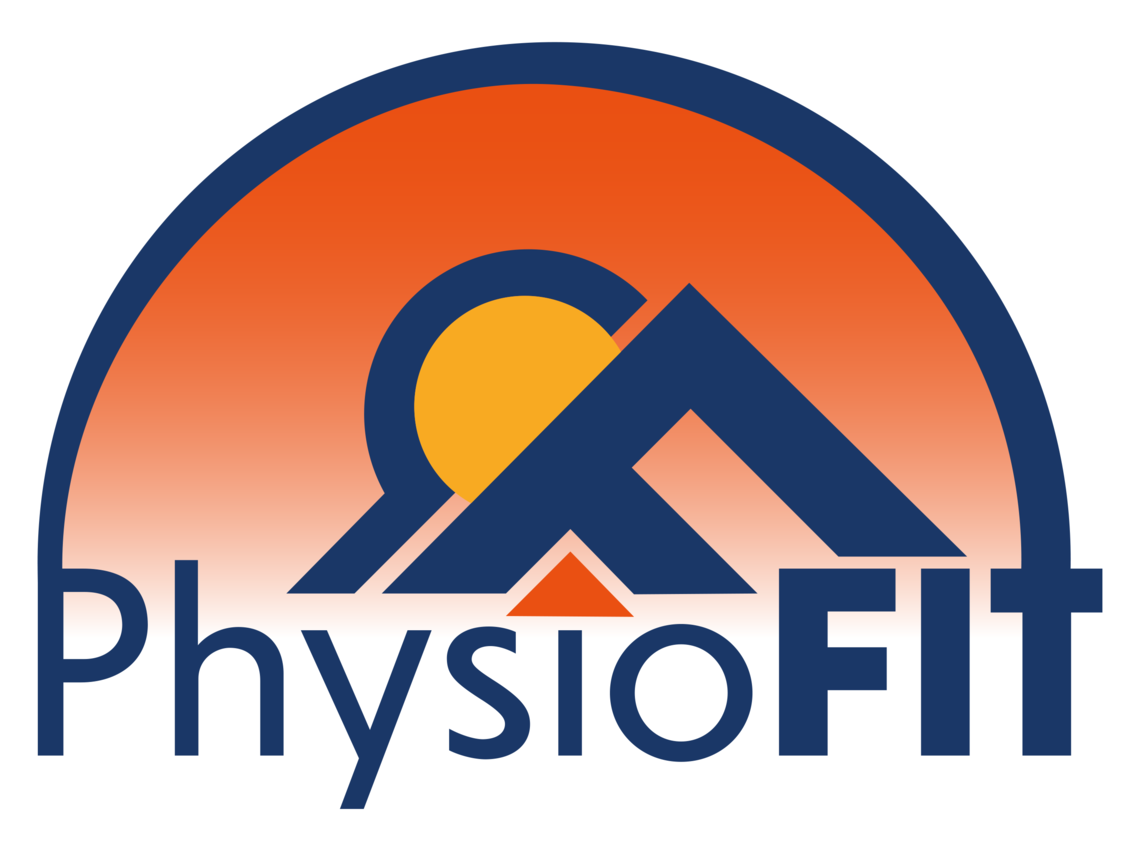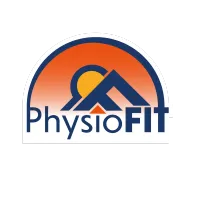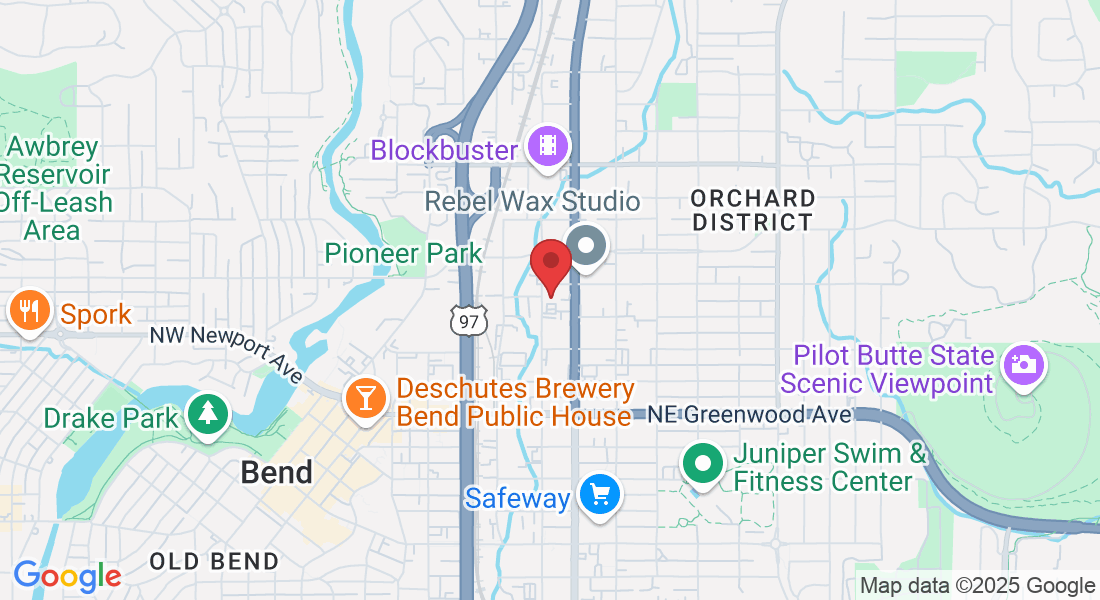PhysioFITNESS
Fitness Injuries: Recover & Recondition With Physical Therapy
Unlock Your Athletic Potential with Effective Rehabilitation for Fitness & Sports Injuries: At PhysioFIT, we understand the frustration and setbacks that sports injuries can cause, impacting athletes' seasons, games, and even their careers. Whether you're an athlete, a fitness enthusiast, doing Crossfit, or just someone who enjoys staying active, our dedicated team of physical therapists is here to provide expert care and help you recover from injuries, regain strength, manage pain, and prevent future problems. Don't let injuries hold you back—schedule an appointment today and take the first step toward getting back in the game.
What You Should Know
According to the National Institutes of Health, the prevalent types of fitness injuries most often include:
Knee Injuries & Sprains
Shin Splints & Strains
Swollen Muscles, Fractures, & Dislocations
A proper diagnosis of a fitness or sports injury involves a thorough evaluation from a professional.
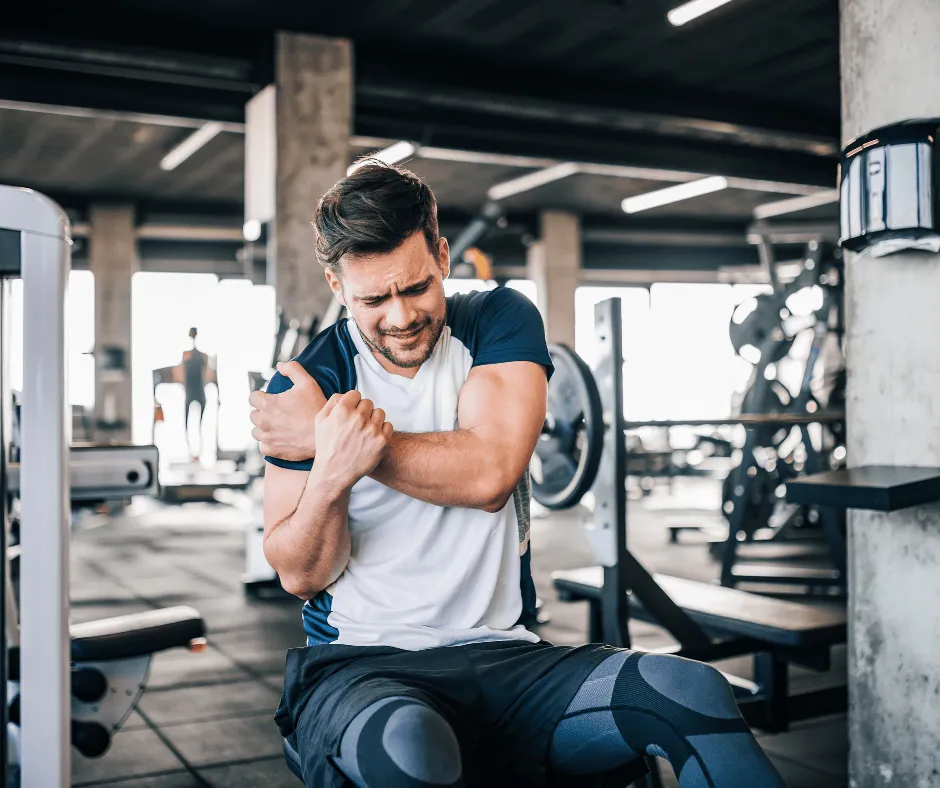
What are the Most Common Ways Athletes Get Hurt?
Depending on the nature of the sports activities in which athletes participate, they may face the possibility of encountering different types of injuries. The human body is subjected to unique stresses and demands during various sports, making certain injuries more prevalent in specific athletic pursuits.
By understanding the specific injury profiles related to their sports, athletes can implement targeted training strategies, adopt proper techniques, and seek professional guidance to reduce the risk of injury and optimize their performance on the field or court.
Ankle Injuries: Athletes who engage in activities involving frequent running are susceptible to ankle injuries. Rolling or twisting the ankle can lead to strains or tears in the connective tissues.
Pulled Muscles: Overusing tired muscles, especially after prolonged workouts or performances, can cause them to stretch or tear. This commonly occurs in various areas of the legs due to the constant running, jumping, and quick changes of direction required in most sports.
Shin Splints: Extended periods of running can result in inflammation of the muscles and connective tissues surrounding the shin.
Knee Injuries: A sudden twisting or improper bending of the knee can cause ligament sprains.
Tennis Elbow: Officially known as tendinitis, tennis elbow occurs when the muscles and connective tissues around the elbow become inflamed from repetitive use.
Hip Flexor Strain: The hip flexor muscles, located on the upper-front side of the thigh, play a significant role in lifting the knee towards the trunk and assisting in leg movements. Weakness or stiffness in these muscles can be caused by prolonged sitting or poor posture. Sports-related injuries to the hip flexors can occur during activities such as sprinting, running on inclines, and sudden starts and turns.
In addition to joint, muscle, and bone injuries, concussions have become a prominent concern in sports. A concussion is a traumatic head injury that may result in severe headaches, altered levels of alertness, or even loss of consciousness. It can occur when the head is struck by a moving object or hits a solid surface.
Concussions are among the most challenging injuries to manage in sports today, and physical therapy plays a crucial role in the multidisciplinary approach to their diagnosis and treatment.
If any of this information resonates with your current situation, we urge you to schedule an appointment with us immediately. Don't let hip pain diminish your life quality - allow us to help you embark on the path to relief today.
Please Note: The information provided on our website is intended for general education and is not a substitute for professional medical advice. Each individual's situation and body is different. Therefore, what may work for one person may not work for another. We care about your well-being and advise you to reach out to us to discuss your specific needs before implementing any advice from our website.
Client Testimonials
Performance Programming
What is Performance Programming?
At PhysioFIT, our Performance Programming is designed to take your abilities to new heights. Whether you are a seasoned athlete or just occasionally active We offer a comprehensive personal training program that focuses on enhancing your overall physical performance. From beginners to professionals, our customized approach ensures that your training aligns with your specific goals.
Our performance programming, aka performance coaching, encompasses a wide range of exercises that target various aspects of your level of athleticism, including mind-body connection, mobility, stability, strength, endurance, power, speed, agility, and overall performance. Through a very personalized combination of exercises, we aim to improve your strength, endurance, technique, and overall physical performance. Our expert team of personal trainers and physical therapists in Bend will work closely with you to develop a personalized program that caters to your unique body, abilities, and lifestyle.
With our Performance Programming, you can expect to see improvements in your physical performance, reduce the risk of injuries, and enhance your strength and overall mobility. It's not just for elite athletes but also beneficial for individuals of all ages and abilities who want to improve their health, maintain an active lifestyle, and unlock their body's full potential.
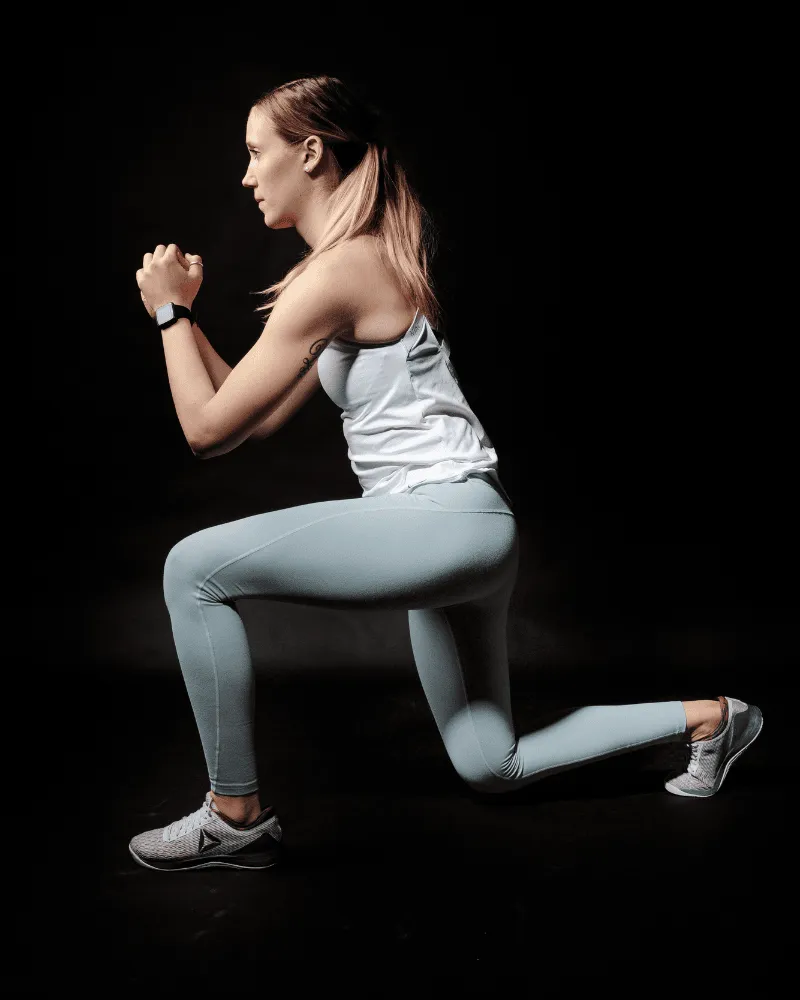
The Benefits of Performance Programming
Enhanced Physical Performance: Our Performance Programming is designed to optimize your fitness abilities and take your performance to the next level. Through targeted exercises and specialized training techniques, you can improve your strength, endurance, speed, agility, and overall physical performance.
Injury Prevention: Our program includes exercises that focus on building strength, stability, and proper movement mechanics, which can help reduce the risk of fitness-related injuries. By improving your body's resilience and addressing any muscle imbalances or weaknesses, you can enhance your ability to withstand the physical demands of your lifestyle.
Technique Improvement: Our expert trainers and physical therapists work closely with you to fine-tune your technique and movement patterns. By providing personalized feedback and guidance, we help you optimize your form, maximize efficiency, and improve your overall technique, leading to better performance and reduced risk of injuries.
Tailored to Your Needs: Performance Programming at PhysioFIT is customized to your specific body, abilities, and goals. We take into account your specific lifestyle demands, current fitness level, and any limitations or considerations you may have. This personalized approach ensures that you receive the most effective training plan that is tailored to your unique needs.
Your Source for All Things Physical Therapy in Bend Oregon
The PhysioBlog
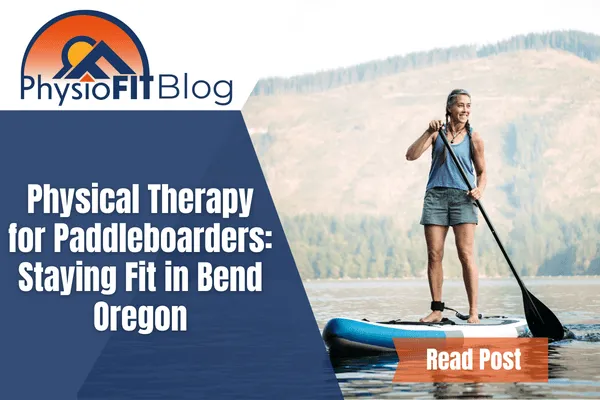
Physical Therapy for Paddleboarders: Staying Fit in Bend Oregon
Understanding Paddle Boarding and Physical Therapy
Please Note:The information provided on our website is intended for general education and is not a substitute for professional medical advice. Each individual's situation and body are different. Therefore, what may work for one person may not work for another. We care about your well-being and advise you to reach out to us to discuss your specific needs before implementing any advice from our website.
Introduction
Paddle boarding on the Deschutes River is a popular pastime for many outdoor enthusiasts. This activity not only offers an opportunity to enjoy the scenic beauty of the river but also provides a full-body workout. However, to fully enjoy this sport, it's crucial to stay fit and maintain good physical health. This is where physical therapy comes into play. Physical therapy plays a vital role in maintaining and improving fitness levels, making it an essential part of a paddle boarder's routine.
Paddleboarding is a sport that requires strength, balance, and endurance. It engages the entire body, from the core muscles used for balance to the arm and shoulder muscles used for paddling. As such, staying fit is crucial for paddleboarders. Regular exercise, proper nutrition, and adequate rest are all important aspects of fitness. However, one aspect that is often overlooked is the role of physical therapy.
Physical therapy, also known as physiotherapy, is a healthcare profession dedicated to improving and maintaining physical function and performance. It involves the use of various techniques, including exercises, manual therapy, and education, to treat and prevent injuries and improve physical abilities. For paddleboarders, physical therapy can help improve strength, flexibility, and balance, reduce the risk of injuries, and enhance performance.

The Sport of Paddleboarding
Paddleboarding has a rich history and has gained significant popularity over the years. It's a versatile sport that can be enjoyed in various water bodies, from calm lakes to flowing rivers like the Deschutes. The health benefits of paddleboarding are numerous. It improves balance, strengthens the core, and provides a low-impact cardio workout. However, like any sport, paddleboarding comes with its share of physical challenges and potential injuries. Common issues include strains, sprains, and classic overuse injuries, particularly in the shoulders due to the repetitive paddling motion.
Paddleboarding is believed to have originated in Hawaii, where it was known as Hoe he'e nalu. It has since spread across the world and has become a popular sport and recreational activity. Today, paddleboarding is enjoyed by people of all ages and fitness levels. It's a great way to enjoy the outdoors, get a full-body workout, and have fun.
One of the main reasons for the popularity of paddleboarding is the health benefits it offers. Paddleboarding is a full-body workout that engages all the major muscle groups. It strengthens the core, improves balance, increases endurance, and provides a low-impact cardio workout. Moreover, being out on the water and in nature can also have positive effects on mental health, reducing stress and improving mood.
However, paddleboarding is not without its challenges. The sport requires a good level of physical fitness and can be physically demanding. Common injuries in paddleboarding include muscle strains and sprains, particularly in the shoulders, back, and knees. These injuries often result from overuse, poor technique, or inadequate physical conditioning.
The Role of Physical Therapy in Paddleboarding
Physical therapy can play a significant role in helping paddleboarders prevent and recover from these injuries. It involves the use of various techniques to improve strength, flexibility, and balance, and to promote healing and recovery.
Preventive physical therapy focuses on strengthening the body and improving technique to prevent injuries. This might involve exercises to strengthen the core and shoulder muscles, improve balance, and enhance paddling technique. For example, a physical therapist might recommend exercises that truly strengthen the core, rotator cuff for shoulder health, and balance exercises to keep you on your board.
Reactive physical therapy, on the other hand, involves treating existing injuries. This might involve manual therapy techniques to reduce pain and inflammation,exercises to promote healing and restore function, and education on modifying activity and technique to prevent re-injury.
Physical therapy can be a valuable resource for paddleboarders. By improving physical fitness and technique, and by treating and preventing injuries, physical therapy can help paddleboarders enjoy their sport safely and effectively.
Overuse Injuries in Paddleboarding
Overuse injuries are particularly common in paddleboarding. These injuries occur when a particular body part is subjected to repeated stress over time, leading to damage and inflammation. In paddleboarding, the shoulders are particularly at risk due to the repetitive motion of paddling.
Overuse injuries can result in pain, reduced mobility, and impaired performance. If left untreated, they can lead to more serious problems like chronic pain and disability. Therefore, it's important to address overuse injuries promptly and effectively.
Physical therapy can play a key role in the management of overuse injuries in paddleboarding. A physical therapist can provide treatments to reduce pain and inflammation, prescribe exercises to strengthen the affected area and restore function, and provide advice on modifying activity and technique to prevent re-injury.
For example, in the case of a shoulder overuse injury, a physical therapist might use manual therapy techniques like massage and mobilization to reduce pain and inflammation, prescribe exercises to strengthen the shoulder muscles and restore mobility, and provide advice on proper paddling technique to reduce stress on the shoulder.
For more detailed information on training for paddleboarding, you can refer to thiscomprehensive guide by REI Co-op. For a real-life experience of paddleboarding on the Deschutes River, check out thisarticle by Oregon Live.

Physical Therapy Techniques for Paddleboarders
Physical therapy offers a range of techniques and exercises specifically designed to target the common problem areas for paddleboarders. These exercises focus on strengthening the core, improving balance, and enhancing the endurance of the upper body, particularly the shoulders.
Core strengthening exercises are crucial for paddleboarders as a strong core improves balance and stability on the board. Exercises, while not a comprehensive list, could include planks, bridges, and loaded carries.
Balance exercises are also important as they help paddleboarders maintain their stability on the board. These might include training on unsteady surfaces, heel-to-toe walk, as well as board specific exercises.
Upper body and shoulder strengthening exercises are vital due to the repetitive paddling motion in paddleboarding. These exercises can help prevent overuse injuries in the shoulders.
It's important to note that these exercises should be performed under the guidance of a qualified physical therapist in bend to ensure correct technique and prevent injuries. A physical therapist can provide a customized exercise program based on the individual's fitness level, goals, and any existing injuries or conditions. If you’d like to explore this more or would like to schedule a time with a physical therapist, contact us at PhysioFITBend.com
FAQs
What are the benefits of paddleboarding? Paddleboarding is a full-body workout that improves balance, strengthens the core, and provides a low-impact cardio workout. It also offers mental health benefits by reducing stress and improving mood.
How can physical therapy help paddleboarders? Physical therapy can help paddleboarders improve strength, flexibility, and balance, reduce the risk of injuries, and enhance performance. It can also aid in the recovery from injuries. Contact us at PhysioFITBend.com for help.
What are some common injuries in paddleboarding? The most common injuries in paddleboarding are muscle strains, sprains, and overuse injuries, particularly in the shoulders due to the repetitive paddling motion.
What is the difference between preventive and reactive physical therapy? Preventive physical therapy focuses on strengthening the body and improving technique to prevent injuries, while reactive physical therapy involves treating existing injuries.
What are some physical therapy exercises for paddleboarders? Physical therapy exercises for paddleboarders include core strengthening exercises like planks and bridges, balance exercises like standing on one leg, and upper body and shoulder strengthening exercises like rotator cuff exercises and shoulder press.
Conclusion
In conclusion, physical therapy plays a crucial role in paddleboarding, particularly for those who enjoy the sport in Bend, Oregon. It not only helps in preventing common injuries but also aids in improving overall performance. Whether you're a seasoned paddleboarder or a beginner, incorporating physical therapy into your fitness regimen can significantly enhance your paddleboarding experience. So, take the plunge and consider physical therapy as an integral part of your paddleboarding journey. It's an investment in your health that will pay off in the long run. Happy paddleboarding!
Please Note: It's important to note that any exercises that are shared should be performed under the guidance of a qualified physical therapist in bend to ensure correct technique and to prevent injuries. A physical therapist can provide a customized exercise program based on the individual's fitness level, goals, and any existing injuries or conditions. If you’d like to explore this more or would like to schedule a time with a physical therapist, contact us at PhysioFITBend.com
Copyright PhysioFIT 2025 . All rights reserved
